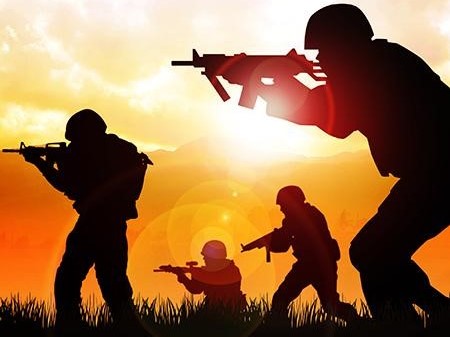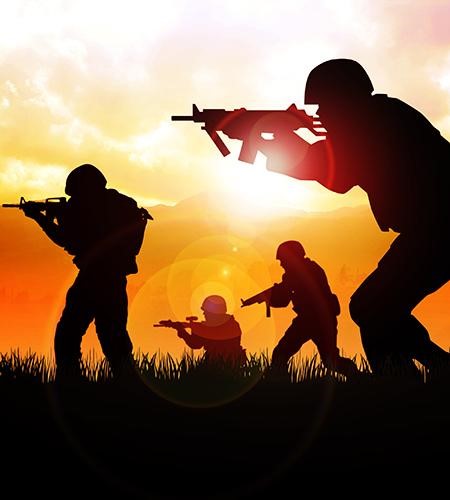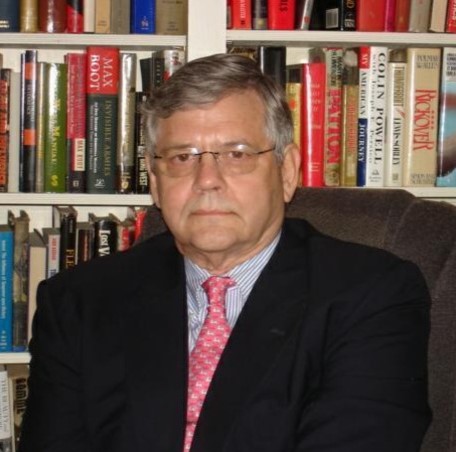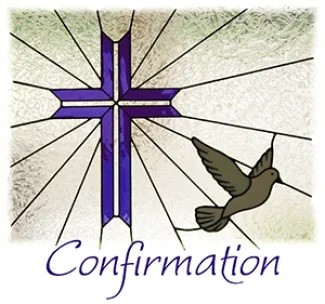2024 Lenten Conversations

Practicing Love: Reminders and Tips for Healthy Church Gatherings
December 31, 2022
Vacation Bible School
April 29, 20242024 Lenten Conversations


2024 Lenten Conversations
Just War Theory, led by Steve Ockenden
A Partnership Study between
St. Francis-in-the-Fields and St. Peter’s Church in the Great Valley
Five Wednesdays - February 21 to March 20 - 6 to 8pm
A light supper will be served.
Alternating Locations: See below
Just War Theory, led by Steve Ockenden
A Partnership Study between
St. Francis-in-the-Fields and St. Peter’s Church in the Great Valley
Five Wednesdays - February 21 to March 20 - 6 to 8pm
A light supper will be served.
Alternating Locations: See below
The 74th General Convention of The Episcopal Church (2003) called upon all members of our denomination, “in discussions about war and especially the strategy of preemptive strikes, to seriously consider and utilize the Just War criteria developed over the centuries…” That convention furthermore urged dioceses and congregations: to study and better understand Just War Theory and pacifism as they apply to the situation of the United States in responding to contemporary international conflicts.”
But what is “Just War Theory?” Why should we consider it, utilize it, study and understand it? And what does it mean for the follower of Jesus Christ? In short, Just War Theory in the Christian Tradition is the application of the faith to profound questions about justice and the use (or non-use) of violence. It is prayerful, theological reflection on questions that have massive implications for our world.
Over five weeks during Lent, St. Francis-in-the-Fields will partner with St. Peter’s Church in the Great Valley to learn about and discuss the key elements of Just War Theory. Led by long-time Episcopalian Steve Ockenden, an active member of St. Peter’s and an authority on Just War issues, we will wade into deep waters and wrestle with profound issues - issues that are not only relevant but urgent for our time.
Dates and locations:
February 21 - St. Francis-in-the-Fields
February 28 - St. Peter’s Church
March 6 - St. Francis-in-the-Fields
March 13 - St. Peter’s Church
March 20 - St. Francis-in-the-Fields
But what is “Just War Theory?” Why should we consider it, utilize it, study and understand it? And what does it mean for the follower of Jesus Christ? In short, Just War Theory in the Christian Tradition is the application of the faith to profound questions about justice and the use (or non-use) of violence. It is prayerful, theological reflection on questions that have massive implications for our world.
Over five weeks during Lent, St. Francis-in-the-Fields will partner with St. Peter’s Church in the Great Valley to learn about and discuss the key elements of Just War Theory. Led by long-time Episcopalian Steve Ockenden, an active member of St. Peter’s and an authority on Just War issues, we will wade into deep waters and wrestle with profound issues - issues that are not only relevant but urgent for our time.
Dates and locations:
February 21 - St. Francis-in-the-Fields
February 28 - St. Peter’s Church
March 6 - St. Francis-in-the-Fields
March 13 - St. Peter’s Church
March 20 - St. Francis-in-the-Fields
About Our Facilitator, Steve Ockenden
Steve Ockenden, a long-time parishioner at St. Peter’s Church in the Great Valley, has spent more than 45 years working in academic, government, and private sector jobs involving national security policy and international affairs, with much of that work focused on arms control, counter-proliferation, international human rights, and counterterrorism.
After military service as an intelligence analyst in Vietnam, he completed a PhD in national security policy at the University of Minnesota. He taught at Macalester College, worked at the RAND Corporation (a Department of Defense think tank), and was selected as a senior national security staff member of the U.S. Senate, where he worked for eight years, including two years as deputy staff director of the Senate Select Committee on Intelligence.
He attended the Strategic Arms Reduction Talks in Geneva and the Mutual and Balanced Force Reduction negotiations in Vienna and consulted with the U.S. Catholic Bishops’ Conference on their pastoral letter concerning nuclear weapons. He also worked with the Red Cross, retired Episcopal Bishop Paul Moore, and others to address the atrocities associated with the 1975 Indonesian invasion of East Timor, a small island nation north of Darwin, Australia. (In 1996, the Nobel Peace Prize was awarded to Bishop Carolos Filipe Jimenez Belo and East Timor President Jose Ramos-Horta for their work to end the violence. Steve, Bishop Moore, and 49 others were selected as the delegation accompanying Bishop Belo and President Ramos-Horta to Oslo.)
After leaving government, Steve spent ten years in the spacecraft industry, making systems for the U.S. Government to detect and monitor Weapons of Mass Destruction (WMD) and other threats. He subsequently founded a small management consulting firm and was a senior participant in the 1998 U.S. Army Summer War Game. He was later recruited by a U.S. Government contractor to work on disarmament, weapons abatement, and pandemic prevention programs throughout the Former Soviet Union. Although retired, he does occasional consulting for corporate and other clients.





